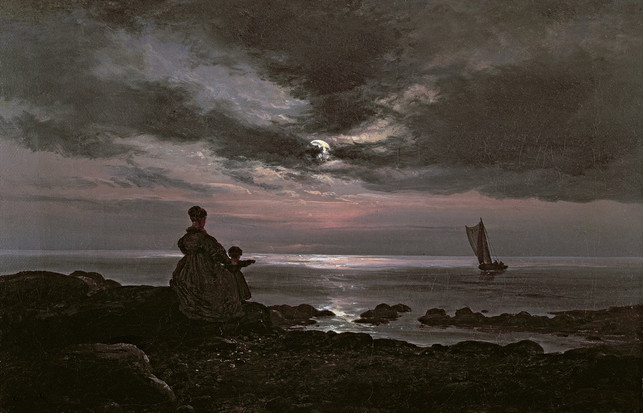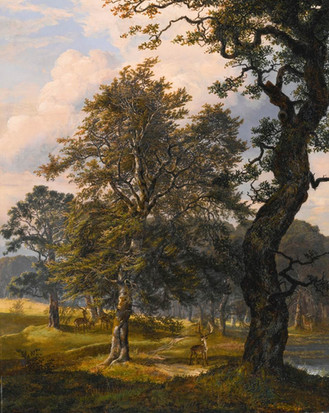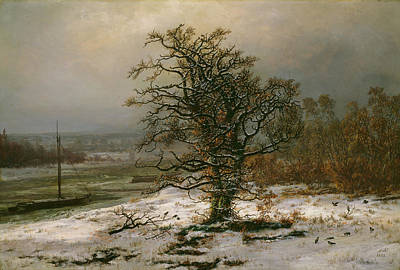
Johan Christian Claussen Dahl, born 24 February 1788, often known as J. C. Dahl, was a Norwegian artist who is considered the first great romantic painter in Norway, the founder of the "golden age" of Norwegian painting, and, by some, one of the greatest European artists of all time. He is often described as "the father of Norwegian landscape painting"and is regarded as the first Norwegian painter to reach a level of artistic accomplishment comparable to that attained by the greatest European artists of his day. He was also the first to acquire genuine fame and cultural renown abroad. As one critic has put it, "J.C. Dahl occupies a central position in Norwegian artistic life of the first half of the 19th century."
Dahl held that a landscape painting should not just depict a specific view, but should also say something about the land's nature and character – the greatness of its past and the life and work of its current inhabitants. The mood was often idyllic, often melancholy. When he added snow to a landscape he painted in the summer, it was not to show the light and colors of snow; it was to use snow as a symbol of death. As one critic has put it, “Unlike the radically Romantic works also appearing at the time, Dahl softens his landscape, introducing elements of genre painting by imbuing it with anecdotal materials: In the background a wisp of smoke rises from a cabin, perhaps the home of the hunter on the snow-covered field.”

Although Dahl spent much of his life outside of Norway, his love for his country is clear in the motifs he chose for his paintings and in his extraordinary efforts on behalf of Norwegian culture generally. He was, for example, a key figure in the founding of the Norwegian National Gallery and of several other major art institutions in Norway, as well as in the preservation of Norwegian stave churches and the restoration of the Nidaros Cathedral in Trondheim and Bergenhus Fortress in Bergen.
Dahl always captures light so beautifully, whether it is the way the moon glows through the clouds or a fiery sunset in the snow. In his painting 'View of Dresden in Moonlight' the dome of the Frauenkirche and the tower of the Hofkirche dominate the skyline; the lamplight in the windows almost seem to flicker; silvers and deep blue combine to give the painting a wonderful jewel-like effect. I shall leave the rest of Dahl's work to speak for itself.






















































































Comments